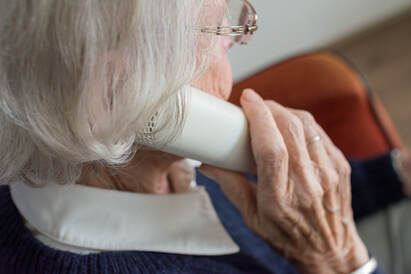|
By Jacqui Tibbits, Director Consultivation  The Coronavirus outbreak has helped raise awareness of loneliness and social isolation within our communities with a focus on those who are vulnerable including older people. The presence of the virus coupled with instructions to stay at home is seeing an increase in community connections and innovation including on-line community groups, adopt a neighbour schemes, and for people to connect or reconnect. One such initiative is the use of red and green cards for vulnerable people to use however I believe there is some caution to be taken. The green and red cards are dual faced. They can either be one side green and one side red; or one side green with a happy face and the other side red with a sad face. The idea is, that vulnerable people place the card in their window to let others know how they are faring. The green side means all is ok and the red side means something is wrong, I need some help. Though these cards are a quick and perhaps an efficient way of communicating with others while maintaining social distancing guidelines there are also issues with them including an increasing risk of being a victim of crime and creating a false sense of security. The first issue with using the cards is identifying that a vulnerable person lives in that residence. Crime can often be about convenience more than planning. The use of the red and green card may increase the risk of unpremeditated crimes. This is when a criminal seizes an opportunity with little or no planning such as burglary, assault or theft. Other offenders may notice the card and make a note of the address to return to at a later time.  Secondly, offenders often pursue reward with little effort or risk. We know there are incidences when people fraudently claim to represent a community service or charitable organisation approaching elders and people with disability at the shops, in their gardens, on the telephone or even knocking on their doors. Use of the green and red cards could increase opportunities for offenders of such heinous acts. Thirdly, use of the cards can create a false sense of security. What happens if the green card is in the window, but something has happened to the resident? Perhaps they have had a fall, are unconscious, need assistance or even died. The green window card continues to communicate to the passers by or the support person that everything is ok when it may not be. It is important to not underestimate risk. It is true that these cards may do more good than harm, and some people may even ponder that the likelihood of something awful occurring may be unlikely however is that a risk you are willing to take? Will you be responsible for this or if you represent an organisation where does the organisation’s responsibility and duty of care lie? Some people already have in place signals for when things are o’kay and things are not which they share with families, neighbours, support networks and even community-based support organisations such as aged care and disability support providers. For example, people I know have:
When trusted relationships with families, neighbours and support workers exist it mitigates the risk in creating a false sense of security and possible criminal activity. I remember one occasion, when an elderly client left her curtains open overnight. That evening a support worker noticed the curtains open on their way home so deliberately drove by the client's home early the next morning to check ‘the signal’. The curtains were still open so the support worker reported their concerns. On follow up, the client had experienced a fall and suitable help was organised. It makes me wonder, if the outcome for this client would have been different if a green card was being used? Being a good neighbour is important and it is great to hear of people supporting one another through this pandemic. Please continue to look after and support each other reporting anything suspicious to the police. Our message for neighbours, friends and family is not to encourage people to put green or red cards in their windows instead find another way to communicate which isn’t as obvious to others. For organisations, we encourage not using the cards and in lieu work with the client to find another way to communicate and support them. Taking a risk management approach to cultivating innovative service delivery is best practice to ensure safe and quality support while maintaining duty of care. A risk management approach assists with identifying and analysing hazards and control measures to mitigate negative risk. Most of all, I encourage all people harnessing new-found community connections to maintain these long after Coronavirus has gone to build safe, inclusive and livable communities. For organisations considering using these cards or for other risk management practices please do not hesitate in contacting Consultivation for assistance. At Consultivation we believe by helping organisations and people flourish we contribute to safe, inclusive and viable communities. Picture sources:
Green and red cards by Consultivation Lady on the telephone by Pixabay
0 Comments
Your comment will be posted after it is approved.
Leave a Reply. |
Jacqui TibbitsJacqui is a positive change management specialist with a penchant for public speaking. Susan JohnsonSusan has expertise in cognitive behaviour therapy, narrative therapy & mindfulness. Guest bloggersGuest bloggers are invited to contribute to the Consultivation blog. If you have an idea, concept or perspective you would like to share please contact Jacqui at Consultivation.
"Consultivation delivers topics skilfully and clearly."
Workshop participant "I have a better understanding of what impacts the aged care changes are going to have on our clients and business." Michelle
"Consultivation delivers topics skillfully and clearly. The knowledge gained will give me guidance in doing my job and keeping up the goodwork." Mario
"Thanks to Consultivation I understand that changes are on-going in the organisation and sector to keep clients in their homes longer."
Nancy "Due to today's training I will be more open minded with staff and pull together and ask for help to improve when needed."
Carol Archives
June 2020
Categories
All
|



 RSS Feed
RSS Feed
